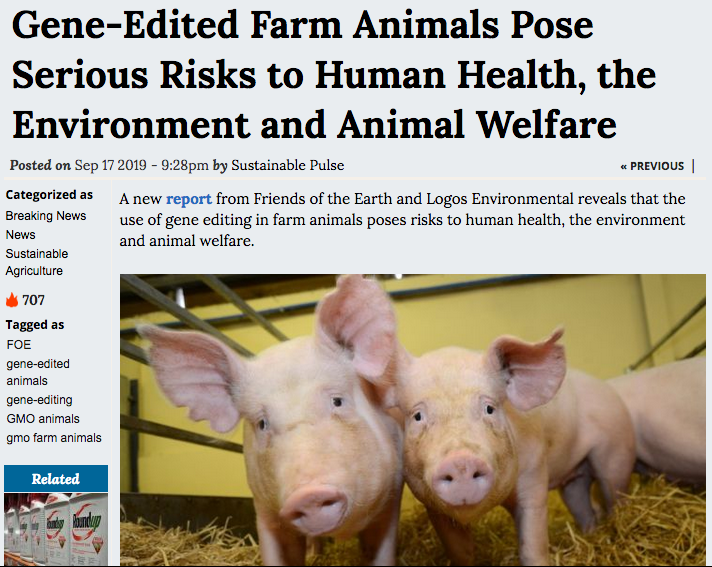Studies show genetically edited farm animals pose health risks. This is an inhumane and unsafe activity that must be banned

“The new report compiles evidence from peer-reviewed scientific studies demonstrating research gaps and unknown and unintended consequences of gene editing in animals. For example, published studies have found enlarged tongues in engineered rabbits and extra vertebrae in pigs, as the Wall Street Journal reported in 2018. Recent cell studies linked CRISPR to DNA damage and cancer concerns.
Key Findings:
- Studies show that, far from being “precise,” gene editing can cause genetic errors, even if only a genetic “tweak” is intended. Genes can be changed at additional locations and gene editing can interfere with gene regulation.
- Common gene editing traits, such as hornless cows and disease resistance, will perpetuate the poor animal management, such as crowding, often found in Concentrated Animal Feeding Operations (CAFOs). This will magnify the current ethical, health and welfare concerns for animals housed in CAFOs.
- Genetic engineering of animals often involves cloning, which leads to birth defects, spontaneous abortions and early postnatal death. Genetic errors can lead to unexpected effects in gene-edited animals, such as enlarged tongues in rabbits and extra vertebrae in pigs. These raise concerns for animal health, welfare and consumer safety.
- Unexpected effects include the production of abnormal proteins in gene-edited animals. Allergens are proteins, so abnormal proteins could create new food allergies and have significant implications for food safety.
- There are significant gaps in research about how genetic errors at the cellular level manifest as unexpected effects and how these unexpected effects may impact the animal’s health, interact with complex environmental factors and affect food safety.
- Although still at the hypothetical stage, gene drive systems could drive a specific trait through a herd or population of farm animals and could accidentally spread to the natural population, potentially affecting biodiversity and even an entire ecosystem.”